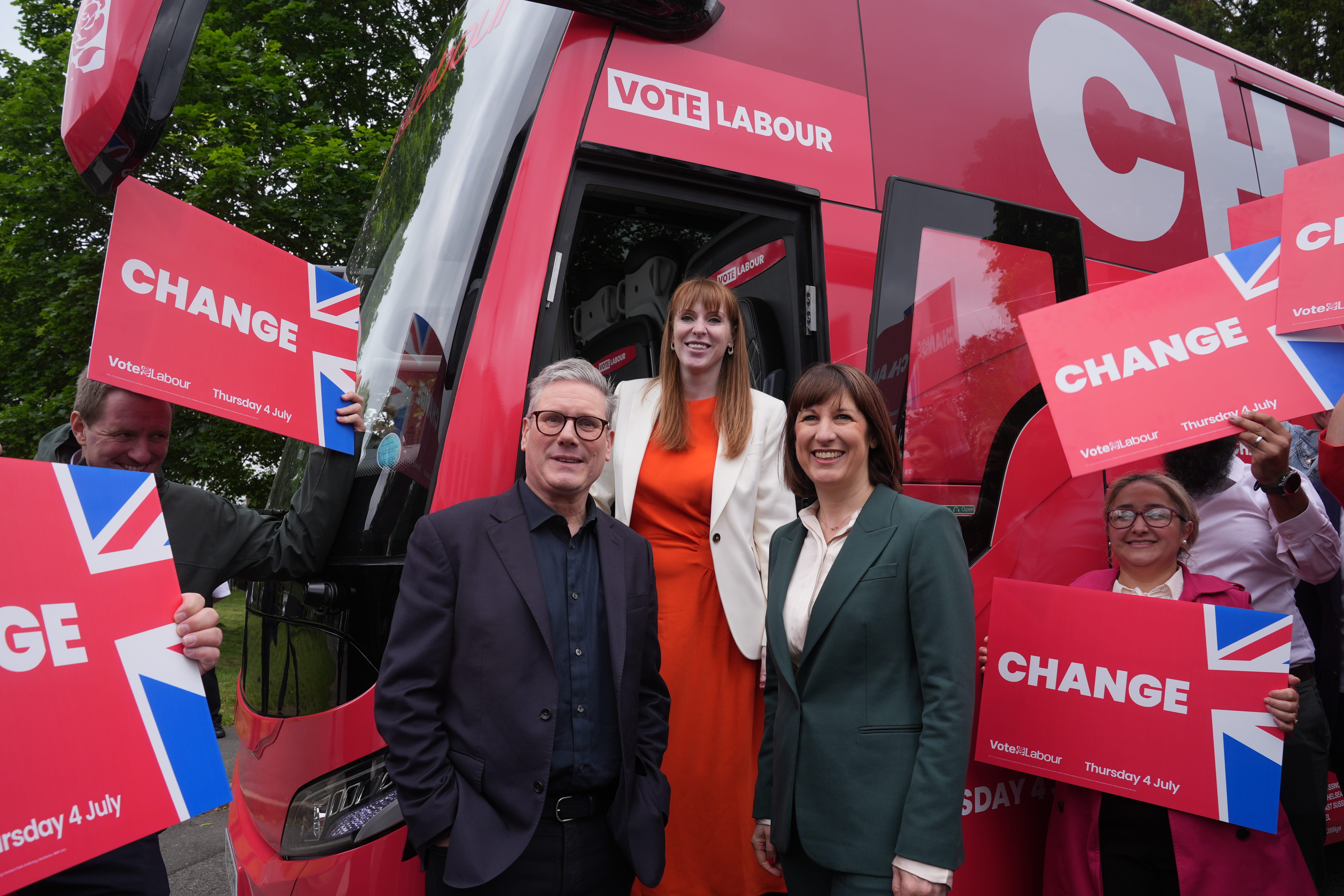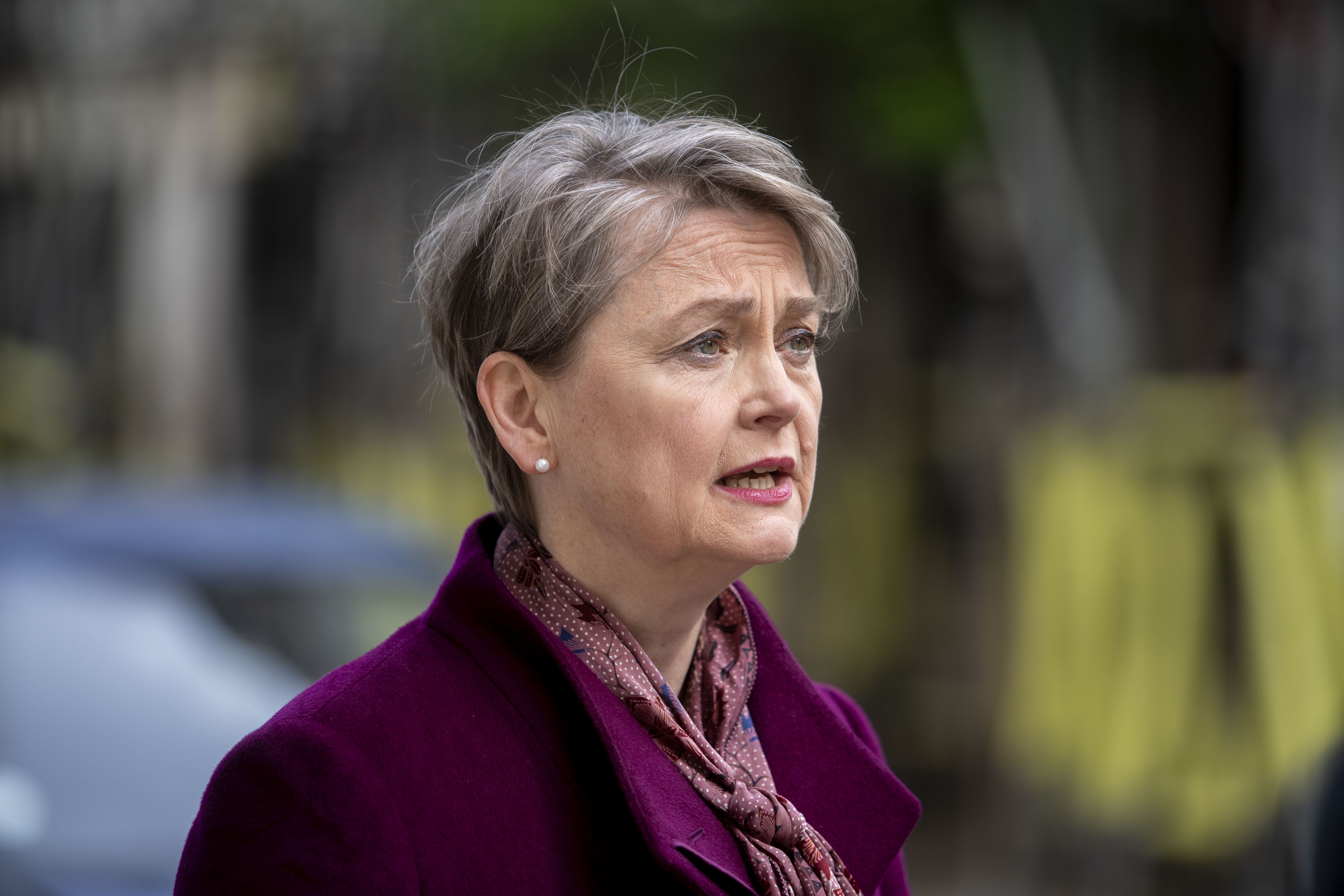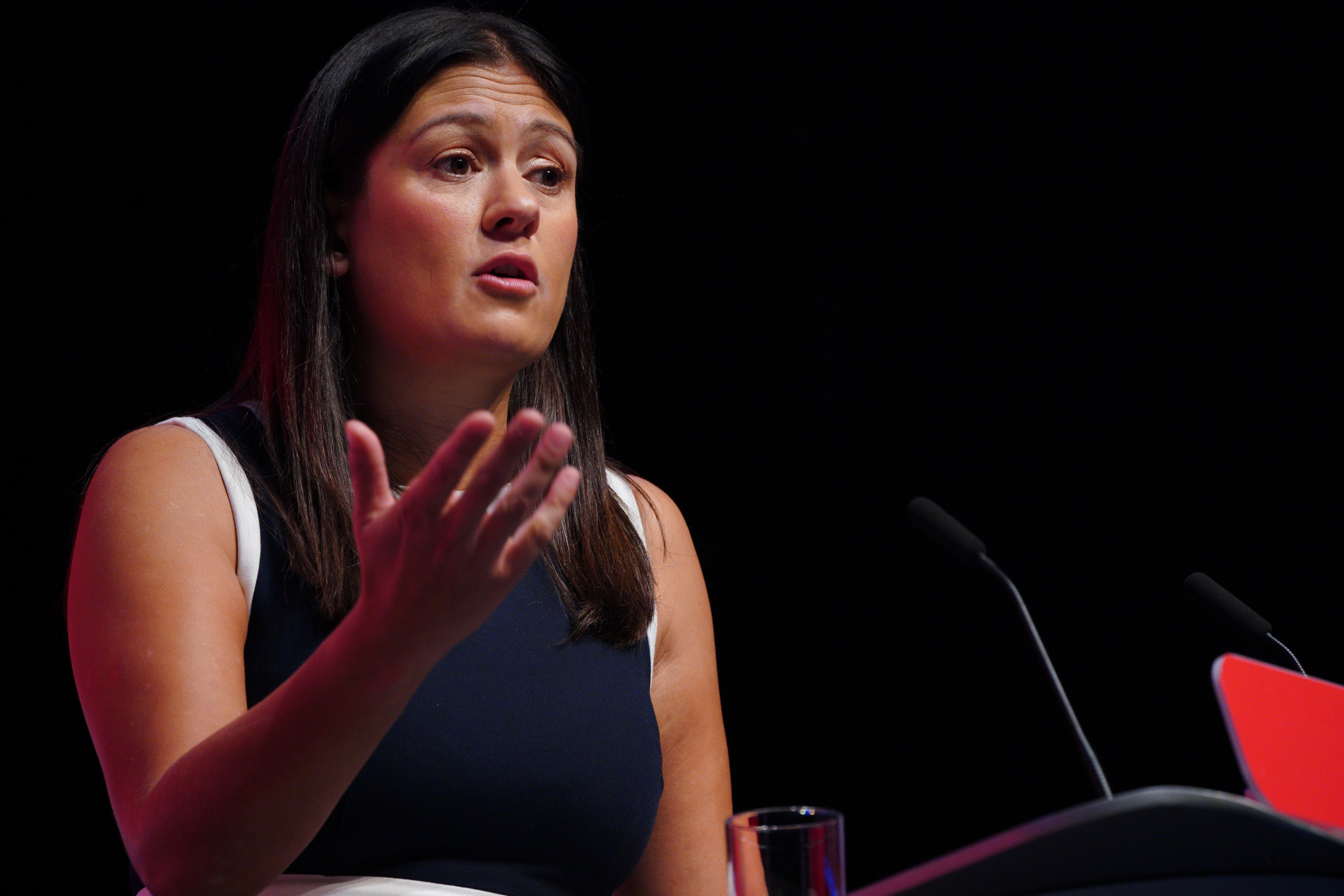Labour party manifesto: What will be Keir Starmer’s key policies for the general election?
A guide to all the manifesto promises we could expect to see from Labour before July 4

Labour announced its ‘triple-lock’ commitment to Britain’s nuclear deterrent on June 3, with Sir Keir Starmer aiming to prove his defence credentials before the general election next month.
The Labour leader said his party would build four new nuclear submarines if elected, and ensure Britain’s nuclear deterrent remains at sea “24 hours a day, 365 days a year.”
It is the latest policy offering from Labour ahead of the general election, as both parties continue to give hints of what their final election manifestos may contain.

Responding to the general election announcement, Sir Keir said: “A vote for Labour is a vote for stability - economic and political. A politics that treads more lightly on all our lives, a vote to stop the chaos.”
“They have failed. Give the Tories five more years, and things will only get worse”.
While neither party has released an official election manifesto yet, which will come in the next few weeks, both have dropped hints and promises over the course of the past few years which offer a clue for their vision for the country.
Here’s where Labour is likely to fall on some key policy areas ahead of the general election:
NHS
NHS waiting times have skyrocketed over the past two years, with the number of people waiting for a hospital treatment hitting a record 7.8 million in late 2023 as around a third of patients wait over 6 months.
The proportion of people waiting over 4 hours in A&E has also increased, reaching a peak of over 50 per cent last Summer, and now at around 45 per cent.
Shadow health secretary Wes Streeting has said the party will get the NHS “back on its feet” by delivering two million more appointments a week by paying NHS staff to work more evenings and weekends.

Labour has pledged to hit the 18-week waiting list target by the end of its first term in government.
Other proposals include doubling the number of NHS scanners, creating 700,000 more urgent dentist appointments, and hiring 8,500 mental health staff.
The party also laments the loss of the “family doctor,” and promises it will enable patients to see the same GP for every appointment if they want to.
However, Mr Streeting raised some eyebrows in April when he announced his intention to use “spare capacity in the private sector” to work towards Labour’s NHS goals, despite what “middle-class lefties” might think.
The shadow health secretary has since clarified that this does not mean Labour wishes to privatise the NHS in any way, and that he believes the health service should always be free for everyone.
NHS key points
- Hit 18-week waiting list target by end of first term
- 2 million more appointments a year by paying NHS staff to work more evenings and weekends
- Improving early diagnosis for cancer by doubling the number of NHS scanners
- 700,000 more urgent dentist appointments
- 8,500 new NHS mental health staff
- Enabling patients to see the same GP every appointment if they want to
- New ‘neighbourhood health centres’ with joined-up services
Tax and economy
Labour has been critical of the government’s economic record, with shadow chancellor Rachel Reeves promising to take an approach of ‘securonomics’ as an antidote to the economic turmoil caused by Liz Truss’s catastrophic 2022 ‘mini-budget’.
Outlining Labour’s ‘first steps for change’ in May, Keir Starmer said the party would impose strict rules on themselves.
Mr Starmer also says the party would introduce an ‘Office for Value for Money’ to ensure taxpayers’ money is spent wisely and halve government consultancy spending, instead focussing on long-term staffing.
This would come alongside a ‘Covid Corruption Commissioner,’ aiming to recoup billions in taxpayer money wasted on fraudulent Covid contracts, as well as ending what Labour calls the VIP ‘fast lane’ government contract procurement process.

Labour has also ruled out increasing income tax (or changing its bands), capital gains tax, or corporation tax.
Shadow chancellor Rachel Reeves has confirmed the party would not seek to undo the government’s 2p cut to National Insurance tax if it came to power, looking to other measures to raise funds.
Chief amongst these measures is scrapping the controversial ‘non-dom’ tax status held by some wealthy foreign nationals in the UK, as well as a crackdown on tax avoidance, and introducing VAT and business rates to private schools.
In April Mr Sunak beat Labour to the punch on non-doms by announcing that the tax regime would be phased out over a transitional period. Labour has said it would scrap the transitional measures, saving a further £2.6 billion.
Tax and economy key points
- Introduce an ‘Office for Value for Money’
- Appoint a Covid Corruption Commissioner
- End the VIP ‘fast lane’ government contract procurement process
- Maintain the cuts to NICs
- No increase to income tax, capital gains tax, or corporation tax
- Cracking down on tax avoidance
- Introducting VAT and business rates to private schools
- No transitional measures in non-dom tax scheme scrappage
Pensions and Welfare
Sir Keir has vowed that a Labour government would aim to ensure no person receiving the state pension lives in poverty, suggesting the leader would likely want to boost the payment.
However, his party has not matched some of the Conservatives’ more generous offers to the UK’s pensioners. In May, Mr Sunak announced the ‘triple lock plus,’ which would increase the personal allowance for pensioners, ensuring the state pension is never taxed.
Labour’s shadow paymaster general Jon Ashworth called this policy not “credible”.
The opposition party has also said it would reintroduce the pensions lifetime allowance

On welfare, work and pensions secretary Liz Kendall has said there would be “no option of a life on benefits” under Labour, as she vowed in March to increase youth employment rates.
The MP for Leicester West said the party would be “investing” in young people’s futures, bringing down the sickness benefit bill, and reforming the welfare system.
This includes measures such as overhauling job centres to end “tick-box culture” and devolving employment support to local areas.
Pensions and welfare key points
- Ensure state pension is a sustainable living wage
- Bring back the pensions lifetime allowance
- Retain the triple lock – but not triple lock plus
- Possible policies that further encourage pension contributions
- Reform the benefits system to boost employment rate
Migration
Labour’s plan on immigration looks to reduce the UK’s reliance on overseas’ workers and bring down migration. The party says it would implement policies that tackle “home-grown skills shortages” to fill key sectors facing employment gaps.
The opposition party says it would take inspiration from Australia’s points-based immigration system, which assesses a migrant workers’ suitability for a visa based on factors such as education, language skills, and work experience.

Another tabled plan involves limiting access to the immigration system for ‘rogue employers’ who underpay workers or otherwise flout labour laws.
The Labour party has also pledged to secure the UK’s borders and reduce small boat crossings by introducing a Border Security Command, which would use counter-terror style tactics.
This would come alongside a Returns Unit that would aim to more efficiently removed asylum seekers with failed applications and so end the practice of housing them in hotels.
Migration key points
- Bringing down migration by filling employment gaps with UK citizens
- Introduce policies closer to Australia’s points-based immigration system
- Cracking down on unethical employers that may exploit migrant workers
- Securing borders and reducing small boat crossings with several new task forces
Education
Labour has made education a key part of its policy programme in its time as in opposition. Their headline measure is to recruit 6,500 new teachers in key subjects, as well as creating a ‘national excellence programme’ which would see teachers given continuous support with professional development.
The party has also said it will set out to review the national curriculum, giving it wider scope to improve creativity, and digital and communication skills.
They also plan to introduce more mental health support staff in schools in a bid to boost attendance. This will come alongside free breakfast clubs for every primary school in England.
Shadow education secretary Bridget Phillipson has said that Labour will also look to reform Ofsted so that parents are given better, more qualitative information than the simple scorecard.
For the youngest children, the party has promised to improve the quality and availability of childcare places where needed. They also aim to boost communication and maths skills for young children.
And for further education, Labour has unveiled Technical Excellence Colleges which aim to give people specialist skills in the fields their local area most requires.
Education key points
- Recruit 6,500 new teachers in key subjects
- A review of the national curriculum
- Employ mental health support staff in every school
- Free breakfast clubs for every primary school in England
- Improving childcare quality and availability
- Technical Excellence Colleges to give people the specialist skills required by their local area
Housing
Labour has raised doubts around the Renter’s Reform Bill, which has seen several amendments that renters’ rights charities have called “watering down”. Lisa Nandy has instead promised a ‘Renters’ Charter’ that would offer a number of new protections to renters.
These include an end to Section 21 ‘no-fault evictions’, bringing an end to automatic evictions for rent arrears, and new rights to keep pets and to make reasonable alterations to property.
On housebuilding, Sir Keir has said he would reintroduce the mandatory target to build 300,000 homes a year. The Tories watered this policy down in 2022 after the target was missed nearly every year.

The party would look to build on what they call the ‘grey belt’ – poor-quality land, car parks and wastelands that are currently classed as green belt.
Measures to help first-time buyers have also been pledged, with Ms Reeves promising a mortgage guarantee scheme and increasing the stamp duty surcharge for foreign investors into UK property.
The shadow chancellor says Labour would also give first-time buyers “first-dibs” on new-build homes, rather than those who already own one or more homes.
Housing key points
- A Renters’ Charter to improve rights and protections for renters’
- Scrapping Section 21 ‘no-fault’ evictions
- Reintroducing the mandatory target to build 300,000 homes a year
- Building on ‘grey belt’ land within the green belt
- Introducing policies to help first-time buyers secure a home
Defence
Sir Keir has made efforts to show his party is tough on national defence ahead of polling day. He has vowed that Britain will remain committed to NATO. He has also said that Labour would meet a 2.5 per cent of GDP military spending target “as soon as we can”.
Speaking in Derbyshire, the Labour leader made clear his commitment to the UK’s nuclear deterrent, pledging to build four new nuclear submarines and ensure the programme is up and running at all times.
The party also says it would conduct a ‘Strategic Defence Review’ to fully understand the state of the Armed Forces and where further funding may be required.
This would come alongside improving service accommodation to boost morale and appointing an ‘Armed Forces Commissioner’ to advocate for service staff.
Defence key points
- Maintain commitment to NATO
- Meet a 2.5 per cent of GDP military spending target when possible
- Maintain and update the UK’s nuclear deterrent
- Conduct a ‘Strategic Defence Review’ to understand where the Armed Forces needs to improve
- Improve service accommodation and appoint an ‘Armed Forces Commissioner’
Environment
Labour has laid out its plans for ‘Great British Energy,’ a publicly-owned sustainable energy company, which it says will reduce household energy bills and create half a million jobs.
This is Labour’s plan to “take control of our energy system” by creating clean, UK-produced power to reduce the country’s reliance on energy from overseas.
The party says the move should permanently take hundreds of pounds off household energy bills, and bring 500,000 jobs to industrial and coastal communities.

Shadow environment secretary Ed Milliband says the party would pay for the plan with a windfall tax on excess profits made by oil and gas companies.
The party has also pledged to hit water companies with “automatic and severe” fines for polluting waterways, as well as blocking water bosses bonuses until they have resolved issues with pollution.
However, Labour made an embarrassing U-turn in February when the party revealed its intention to ditch a pledge to spend £28bn annually on green initiatives, reducing the amount by nearly half.
Environment key points
- Setting up ‘Great British Energy’ to bring energy production in-house and reduce energy bills permanently
- Windfall tax on excess profits made by oil and gas companies
- Heavy fines for polluting water companies, and blocking bonuses for water bosses who break rules
- Clean power by 2030
Join our commenting forum
Join thought-provoking conversations, follow other Independent readers and see their replies
Comments
Bookmark popover
Removed from bookmarks